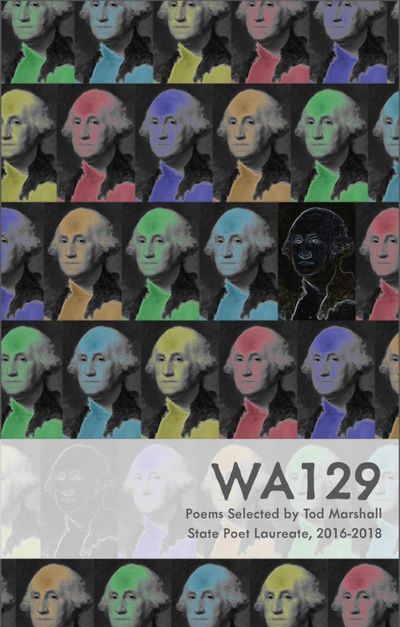Tod Marshall’s new anthology proves poetry alive in Washington

For many readers, poetry can seem daunting, freighted with mistaken notions taught long ago by well-meaning but misguided English teachers: that what a poem says and what a poem means are always two different things, and it’s up to the reader to puzzle out the actual meaning; and that true poetry is an “elevated” art, and only the intellectually gifted are able to “get” the hidden meanings.
The truth is, there are as many kinds of poetry as there are poets: its inclusiveness is one of poetry’s defining characteristics.
Attention to the sounds of the words is another hallmark, as is compression: the ability to say the most with the fewest words. And traditionally, poetry has been the written art that most directly aims to connect the head with the heart, to use words to evoke emotion. All the technical finesse in the world is for naught in a poem that fails to connect with its reader, or listener, in this important way.
As proof of poetry’s current vitality, along comes WA 129, the new poetry anthology of Washington State poets, gathered and edited by Spokane’s own Tod Marshall, state poet laureate. More than 2,000 poems were submitted, and the book’s wide range and high standards throughout are testament to Marshall’s claim that “we are fortunate to live in a state rich with both poetry and inspiration.”
The “129” of the title refers to the number of years Washington will have been a state when Marshall hands over the laureate reins in 2018. It’s also the number of poets represented, and they come from all over the map, geographically and stylistically. Eastern Washington is well represented, and Spokane poet laureate Laura Read’s poem, inspired by a Kay O’Rourke painting, moves between personal history and the haunting spirit of the past: “Every day I drive to work/ down Fort George Wright Drive./ Sometimes history is as close as my hair/ blowing in my eyes.”
Marshall’s introduction points out that he chose “a wide range of voices, subjects, and poetics.” No doubt: Seattle’s Paul Nelson sounds a bit beat, and quotes painter Morris Graves, in “Clues from Hell”: “To sift through the wreckage one day they’ll want clues. Clues to how you ended up next to a fire (well-tended) & clues to the spiritual chase. Clues to the record & direction (for future seekers) & clues to where you hid the Humboldt fog.”
Washington’s poetic luminaries are well represented: Christopher Howell adds an intense narrative poem set during the Vietnam War that ends with a meditation on the destruction of Troy; Nance Van Winckel, Heather McHugh, Tess Gallagher and Sherman Alexie offer new work that is both challenging and articulate. Their poems are complex, but accessible, and repeated readings bring repeated delights.
Quibbles? Very few. Some poems seem a little slight. In a brief poem, it’s difficult to create the whole, imagined world a piece of literature demands. Here’s a short poem that does just that: an untitled poem by Elizabeth Myhr: “when we first met/ you opened me like a letter/ who can speak of what the peony gives out/ when it’s bowed down to the ground with rain.” Relying on the image, the picture of the peony, is an elegant way to carry the feeling of openness and grace.
The book also carries a few surprises, in poems from authors more well known for their prose: Tom Robbins writes of “Stick Indians”; Mark Halperin pens a sonnet; Spokane’s Terry Bain brings a heartfelt, desperate plea at the end of “Tell Me About the Trees.” To say more would deplete the mystery and magic that inhabits a great poem.
WA 129 contains many great poems, and part of their charm lies in that gesture of reaching out to a reader with captivating language and heart-felt thoughts: the best words in the best order. Readers willing to open up to the book might come away with a renewed love of poetry, and a better understanding of our world. Thanks go to our poet laureate for marshaling the state’s lyrical resources, just when we need them the most.
Dennis Held’s most recent book of poems, Ourself, is available at Auntie’s Books.